2017/2018
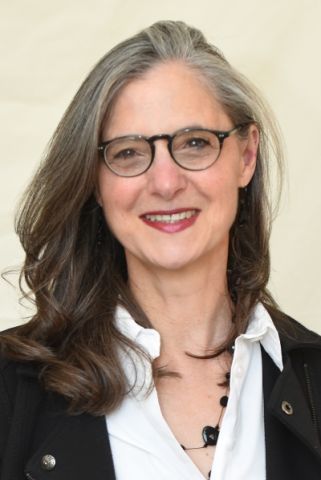
Nancy Sinkoff, Ph.D.

Associate Professor of Jewish Studies and History, Rutgers University
International Teaching Fellow
Nancy Sinkoff is Associate Professor of Jewish Studies and History and the Director of the Center for European Studies at Rutgers University. Her fields of interest include early modern and modern Jewish history, East European Jewish intellectual history both in the Polish heartland and in its diasporic settlements and the cultural significance of the collective exile of Jews from Europe’s heartland through an investigation of survivors’ relationships to Europe and “home.” Professor Sinkoff’s most recent publications include Out of the Shtetl: Making Jews Modern in the Polish Borderland (2004), “Yidishkayt and the Making of Lucy S. Dawidowicz,” the introduction to Dawidowicz, From That Place and Time, 1938-1947: A Memoir (2008), and “Lucy S. Dawidowicz,” American National Biography.
As the 2017-2018 International Teaching Fellow, Sinkoff was in residence at the USC Shoah Foundation Center for Advanced Genocide Research for a week consulting with staff and conducting research in the Visual History Archive for courses she will teach this year. One such course is about exile under Nazism and communism, and she wants to focus on Jews’ movement through the region. Professor Sinkoff will show clips of different survivors describing the same event, to illustrate how different people viewed the same event from very different perspectives, and having her students map a survivor’s trajectory through the Holocaust.
To learn more about Nancy Sinkoff click here.
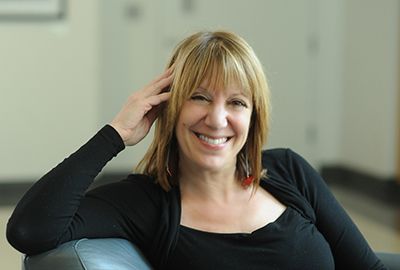
Barbie Zelizer, Ph.D.

Professor of Communication, University of Pennsylvania
Rutman Fellow for Research and Teaching
Course: Mediating War and Genocide through Visual Memory
Barbie Zelizer is the Raymond Williams Professor of Communication and Director of the Center for Media at Risk at the University of Pennsylvania's Annenberg School for Communication. A former journalist, Zelizer is known for her work on journalism, culture, memory and images, particularly in times of crisis. Zelizer has authored or edited fourteen books, including the award-winning About To Die: How News Images Move the Public (Oxford, 2010) and Remembering to Forget: Holocaust Memory Through the Camera's Eye (Chicago, 1998), and over 150 articles, book chapters and essays.
Professor Zelizer will use her fellowship to teach a Ph.D. research seminar entitled “Mediating War and Genocide Through Visual Memory.” The seminar will take place at the end of the spring 2018 semester and continue into the summer, with a two-week immersive experience in Berlin.
To learn more about Barbie Zelizer click here.
2016/2017
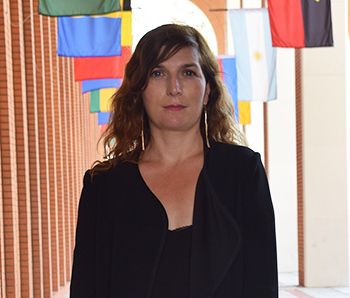
Mélanie Péron, Ph.D.

Senior Lecturer in French and Francophone Studies, University of Pennsylvania
Rutman Fellow for Research and Teaching
Professor Péron is a senior lecturer in the French and Francophone department at the University of Pennsylvania’s College of Arts and Sciences, where she received the Dean’s Award for Distinguished Teaching by Affiliated Faculty.
Péron brought survivors’ stories to the classroom again this year, following her week in residence at USC Shoah Foundation Center for Advanced Genocide Research. Professor Péron decided to put a human face on the abstract dates and numbers that comprise most Holocaust education when teaching a new course on occupied France in World War II. In her course, she connected testimony to three works about French Jews the students will be reading: the diary of Helene Berr, letters from Louise Jacobson, and a novel about Dora Bruder. All three women were about 20 during the war and all three died when they were deported from France during the occupation. “The objective of the course is to put a voice on silences in a time period when it was taboo [to speak about the occupation] for many reasons,” Péron said. “So giving a voice to written words, I think that’s what’s going to make it tangible for my students.”
To watch her lecture click here.
To learn more about Mélanie Péron click here.
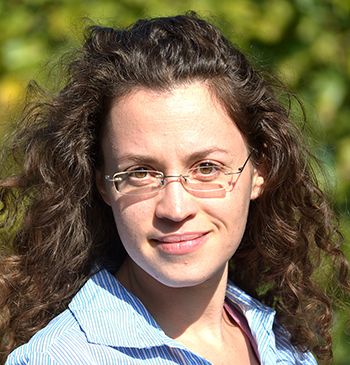
Shira Klein, Ph.D.

Assistant Professor of History, Chapman University
International Teaching Fellow
With the support of the USC Shoah Foundation Center for Advanced Genocide Research, Professor Klein is integrating testimonies from the Visual History Archive into two of her history courses – an existing undergraduate course entitled “Jewish Life from Napoleon to Hitler” and a new graduate course entitled “Jewish Migration and War.” Previously in her teaching, she selected excerpts of testimonies from the Visual History Archive to show in her classes. The teaching fellowship will support her in developing the tools to assign research to her students. In the undergraduate course, students will combine Visual History Archive interviews with secondary sources to reflect on how the life history of an Italian, French, or German Jewish individual illustrates larger historical events or developments. In the graduate course, Professor Klein’s students will use testimonies as one of three primary sources for their research into Jewish migration in the 1930s and 1940s. She incorporated her work at the Shoah Foundation into her newest book, Italy’s Jews from Emancipation to Fascism, about the history of Italian Jews from the late 19th century to the 1950s.
To learn more about Shira Klein click here.
2015/2016
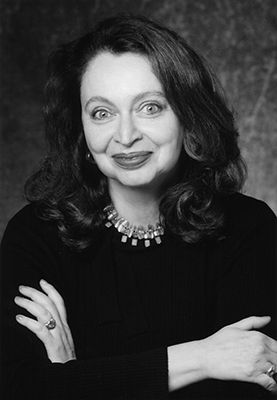
Liliane Weissberg, Ph.D.

Professor of German and Comparative Literature, University of Pennsylvania
Rutman Fellow for Research and Teaching
Course: Witnessing, Remembering, and Writing the Holocaust
Professor Weissberg is the Christopher H. Browne Distinguished Professor in the School of Arts and Sciences at the University of Pennsylvania. She also belongs to the university’s Jewish Studies Program, Art History Graduate Group, English Graduate Group, Program in Visual Studies, Committee in Women’s Studies, and Center in Folklore and Ethnography. A few of her book publications include: a critical edition of Hannah Arendt's Rahel Varnhagen: The Life of a Jewess (1997), Cultural Memory and the Construction of Identity (with Dan Ben-Amos, 1999) and Romancing the Shadow: Poe and Race (with J. Gerald Kennedy, 2001).
As she began preparing a new course — “Witnessing, Remembering, and Writing the Holocaust” — Professor Weissberg wanted to show Holocaust survivors as they told their stories. Words printed on a page could never capture the subtle gestures, inflections and pauses available in watching survivors tell their stories. Integrating testimony into her course let her and her students try to answer: How do we witness? What do we remember and choose not to remember? What do we then articulate? Professor Weissberg wants her students to think about the lifelong impact of genocide. “You may survive the war,” she said, “but how will you survive your memories?”
To learn more about her research click here.
To learn more about Liliane Weissberg click here.
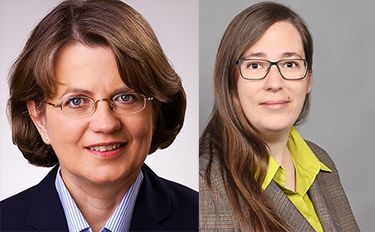
Gertrud Pickhan, Ph.D., and Alina Bothe, Ph.D.

Professor Pickhan is a professor at the Free University of Berlin (Freie Universität); Alina Bothe, PhD, is a research associate at the Center of Jewish Studies Berlin-Brandenburg. Both are longtime users of the Visual History Archive; Pickhan was one of the first professors at Freie Universität (FU) to incorporate testimony after FU became the first full access site in Europe in 2006. Bothe earned her Ph.D. by writing about how the Visual History Archive and other forms of digitization shape the way we research, write and perceive the history of the Holocaust.
At USC Shoah Foundation Center for Advanced Genocide Research, they expanded a graduate seminar course called “Expelled! Researching the Deportation of Polish Jews from Berlin in 1938.” The course now uses the Visual History Archive to research the fates of specific families who were affected by the Berlin Polenaktion, three days in which 1,500 to 6,000 people of Polish descent were forcefully expelled from Berlin to Poland, foreshadowing the Kristallnacht pogrom against Jews a month later. Bothe also gave a public lecture that explored how users experience and relate to the testimonies in the USC Shoah Foundation Visual History Archive.
To read more about their course click here.
To learn more about Gertrud Pickhan and Alina Bothe click here.
2014/2015
 Linda Kim
Linda Kim
Assistant Professor of Art History, Drexel University in Philadelphia
Course: Witness to Atrocity: Photography and Human Rights
Term: TBD
During her fellowship, Kim will research the uses of photography in the video testimonies of the survivors and witnesses for an anthropology course she’ll be teaching called Witness to Atrocity: Photography and Human Rights.
 Harry Reicher
Harry Reicher
Adjunct Professor of Law, University of Pennsylvania in Philadelphia
Course: Law and the Holocaust
Term: 2014-2015
The course utilizes a variety of audio-visual material, including documentary and feature films and archival footage, to explore the Nuremberg Laws, Nazi ideology, war crimes trials and other legal aspects of the Holocaust. Reicher said his teaching fellowship will allow him to incorporate testimony from the Visual History Archive as well.
Professor Reicher was Adjunct Professor of Law at the University of Pennsylvania Law School and one of Australia’s leading international law and taxation experts. He also taught for many years at Monash University in Melbourne, Australia, and the University of Melbourne Law School. He served on the United States Holocaust Memorial Council, which oversees the U.S. Holocaust Memorial Museum, and the museum’s Academic Committee and Committee on Conscience.
During his residency at the USC Shoah Foundation Center for Advanced Genocide Research, Professor Reicher combed the Visual History Archive for personal histories that would add an important human dimension to his popular Law and the Holocaust course at the University of Pennsylvania Law School. Professor Reicher said he believed it was essential for law students to fully appreciate “the intensely human effects of the legal system on the daily lives of ordinary walking, talking, thinking, feeling human beings, like every single one of us.” By adding the VHA’s intensely moving and intimate testimonies to his course, he said, “the potential for impact and influence is enormous.” Professor Reicher passed away in October 2014, three months after completing his Rutman Fellowship for Research and Teaching.
To watch his lecture click here.
To read his blog post click here.
To learn more about Harry Reicher click here.
 David Tomkins
David Tomkins
Assistant Professor of Writing, USC
Course: Writing 150 – Section: Identity and Diversity in Global Contexts
Term: Fall 2014
Tomkins’ section of Writing 150 is titled Identity and Diversity in Global Contexts. Survivor testimonies in the VHA will act as foundational texts as the class explores the role language and rhetoric play in the persecution of difference, as well as the way perspectives on survival can shape racial, ethnic, religious, and sexual identities.
2013/2014
 Andrea Peto
Andrea Peto
Professor of Gender Studies, Central European University - Budapest
Course: Gendered Memories of Holocaust
Term: Fall 2013
The proposed course will rely on students’ use of the VHA in the context of problematizing gendered perspectives on the Holocaust and creating a conceptual framework supported by the relevant theoretical background for a video project they will create using IWitness.
 Jakub Mlynar
Jakub Mlynar
Professor of Sociology, Charles University in Prague
Course: Identities, Memories, and Narratives in Society
Term:
The course is focused on the sociological dimension of the conception of identity. The VHA will provide the interviews for the research practice and illustration of social, linguistic and narrative means in the process of the identity construction.
 Waitman Beorn
Waitman Beorn
Louis and Frances Blumkin Professor of Holocaust and Genocide Studies, University of Nebraska - Omaha
Course: HIST 4720: The History of the Holocaust
Students will focus on one survivor’s journey through the Holocaust to both personalize and complicate the history of this period for them. A past visualization project will also be revised to focus even more on “visualizing” the Shoah Archive testimonies, either conceptually or empirically.
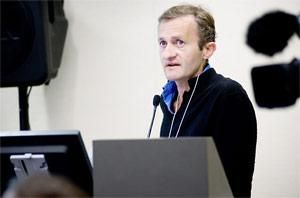
Colin Keaveney

Assistant Professor of French, USC
Course: Representations of and Testimonies About Mass Violence and Genocide
Term: Spring 2014
Pedagogical goals and outcomes include: 1) introducing students to the VHA while inspiring and enabling them to use its resources; 2) giving students a better understanding of the genesis of the Shoah through engagement with individual survivor stories; 3) allowing students to explore the period of the Occupation and Vichy administration from the perspectives of those who lived through it; 4) fullying integrating the VHA into the teaching of the set texts; 5) improving student research skills; and 6) fostering greater student autonomy in the area of research.
2012/2013
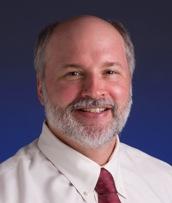
Roy Schwartzman

Professor of Communication Studies, UNC Greensboro
Course: Honors Seminar - Witnessing the Holocaust
Term: Fall 2012
How does our encounter with the monumental evil of the Holocaust change as we transition from live testimonies to multimedia memory? How do we understand the Holocaust, those who lived through it, and ourselves differently in the (mediated) presence of these witnesses—perpetrators, victims, and bystanders—compared to the narratives of history books?
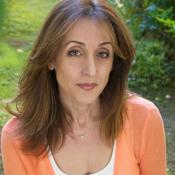
Gina Nahai

Lecturer in the Master of Professional Writing Program, USC
Course: Oral History, Witness, and Writing
Term: Spring 2013
How is/can oral history be used and translated into fiction and non-fiction forms? The clas looks at the ethical implications in this kind of storytelling, as well as issues of appropriation, honoring the source material vs. constructing a new narrative, and understanding "the truth."
 Marcela Zoufala
Marcela Zoufala
Professor of Cultural Studies, Charles University, Prague
Course: Sources and Manifestations of anti-Semitism in contemporary Czech society
Term: Spring 2013
This course explores and identifies the expressions of anti-Semitism in contemporary Czech society and points out analogous parallel manifestations in the pre-war era.
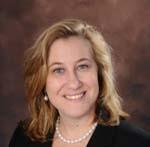
Rebecca Kobrin

Assistant Professor of American Jewish History, Columbia University
Course: The Holocaust in American Culture
Term: Fall 2012
The course explores how Nazism and the Holocaust have been understood, interpreted and constructed by American scholars and the larger American society since the 1930s. Taking a chronological approach, the course follows the evolution of historical and popular ideas in America about the Nazi rise to power, the regime’s racial policies, its treatment of Jews during the war and the naming and coming to terms with the Holocaust, as the organized murder of European Jewry came to be known.
"Teaching the first course the history department has ever offered on the Shoah in Fall 2012. Indeed, it is a historic moment for Columbia, which offers few courses devoted to this crucial and critical topic."
2011/2012
 Vincent Farenga
Vincent Farenga
Professor of Classics & Comparative Literature, USC
Course: Comparative Literature course 385, Literature and Justice
Term: Fall 2013
The course examines writers of fiction and autobiography (ca. 1950 – 2000) who claim to be victims of injustice in multicultural societies. These writers will expose you to individual and collective injustice due to racism, ethnicity, gender, religious intolerance, and immigration in societies such as Cuba, Guatemala, Eastern Europe, Israel-Palestine, Somalia, Afghanistan, India, and the U.S.
The course includes narratives about two victims who survived the Shoah: one is a historical survivor, Primo Levi, interred in Auschwitz (If This Is A Man [Survival in Auschwitz]), and the other a fictional survivor, Aharon Appelfeld’s Tzili (Tzili: Story of A Life), who managed to avoid the camps.
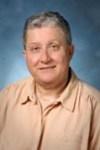
Yaffa Weisman

Associate Professor of Jewish Studies, USC
Course: Literature of Resistance
Term: Fall 2011
The course explores expressions of resistance in a variety of societies and groups that experienced oppression deriving from their cultural, religious, gender, and national affiliations. Students analyze instances of spiritual, political, military and cultural resistance to subjugation and oppression, from antiquity to modernity, as they are expressed in diverse cultural modes.
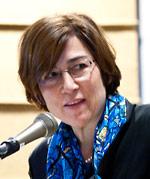
Alison Dundes Renteln

Professor of Political Science and Anthropology, USC
Course: Political Science 248, International Human Rights
Term: Fall 2011
The GE course provides an overview of the interdisciplinary field of human rights including the philosophical foundations, historical background, controversial social issues in specific contexts, and institutional mechanisms for enforcing international legal standards in national and international tribunals. The course considers some of the most serious violations of human rights including genocide in specific historical circumstances, crimes against humanity, and war crimes.
2009/2010
Cristina Villa
Professor of Italian and French, USC
Course: Italian 320: Advanced Composition and Style ("The Shoah in Italy and the Myth of the Good Italian")
Term: 2009-2010
Dr. Villa used her stipend to inaugurate a new fall course, “The Shoah in Italy and the Myth of the Good Italian.” Using Italian films, fiction, prose, and video testimony, Dr. Villa sought to challenge a commonly held Italian view of the Holocaust that casts Italians as anti-fascist philo-semites. She proceeded chronologically through the Holocaust from the pre-war to the post-war period, pairing later cultural artifacts with VHA testimonies to compare and contrast the memories of the survivors with the cultural memory conveyed through artistic views of those same events.
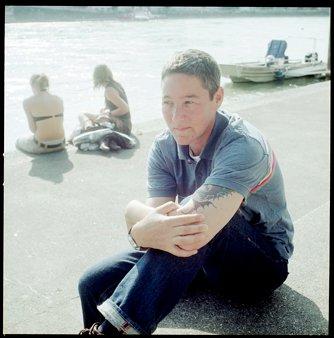
Judith Halberstam

Professor of American Studies and Ethnicity, Gender Studies, and Comparative Literature, USC
Courses: 1) The Sociology of the Image; 2) Representations of the Holocaust
Term: 2009-2010
Dr. Halberstam used the archive in one undergraduate and two graduate courses. In her graduate seminar titled “The Sociology of the Image”—which Halberstam co-taught with Professor Macarena Gomez-Barris—she examined “the function of visual culture in archiving experiences of trauma and terror…Our seminar, which contains a lengthy unit on the Holocaust, tracks the social life of images and examines the use of image data bases to record the seemingly unrepresentable accounts of survival and loss in the wake of political terror.”
Dr. Halberstam also taught a new undergraduate and graduate course titled “Representations of the Holocaust: Issues of Gender and Sexuality.” The course included a section on using the testimonies in the archive as source material for understanding the complexity of camp life in general, and the ways in which sexuality was used as a weapon against female inmates in particular.
2007/2008
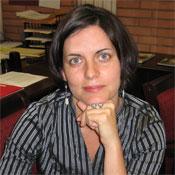
Macarena Gomez-Barris

Associate Professor of American Studies and Ethnicity, USC
Courses: SOCI 599: Sociology of Memory (Fall 2008); SOCI 420: Sociology of Violence (Spring 2009)
Dr. Gomez-Barris incorporated testimonies into two Spring 2009 Sociology courses: “Sociology of Violence” and “Visual Representations of Atrocity: the Holocaust and Latin American Experiences of State Terror.” The former course included a five-week segment that focused students’ attention on the aftermath of genocide, state violence, and atrocity. The latter focused on the methodology of visual testimony, using the Holocaust as a principal case study.

Colin Keaveney

Assistant Professor of French, USC
Course: FREN 250: Paris as Seen by Writers, Filmmakers, and Photographers
Term: Fall 2008
Dr. Keaveney utilized testimonies in his French 250 course, “Paris as Seen by Writers, Filmmakers, and Photographers” (Fall 2008, Spring 2009). A central course text, Dora Bruder, explores coincidences between lives and events in Paris through the 20th century; Dr. Keaveney assigned SFI testimonies that mirrored the experiences discussed in Dora Bruder—roundups of French Jews in early 1942, internment in Drancy and Tourelles in 1942 and 1943, etc.
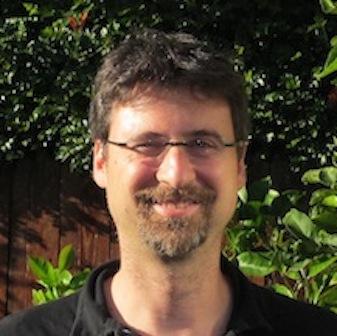
Paul Lerner

Associate Professor of History, USC
Course: HIST 428: Life and Death in Nazi Germany
Term: TBD
This course provides an in-depth exploration of Germany under the Nazis from a variety of perspectives, including political history, history of the arts and architecture, and economic, social and military history. The course emphasizes the racialized vision of the body politic and the attempt to control life and death, to determine who can reproduce, who was permitted to live in the Nazi State and whose life was deemed “unworthy of life.”
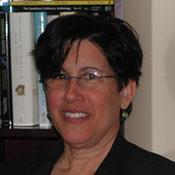
Beth Meyerowitz

Professor of Psychology and Preventative Medicine, USC
Course: PSYCH 499: Psychological Adjustment following Traumatic Life Events: the Case of Genocide
Term: Spring 2009
Dr. Meyerowitz’s Spring 2009 course “Psychological Adjustment Following Traumatic Life Events: the Case of Genocide” provided students with a theoretical framework within which to evaluate the effects of trauma using specific case studies from the Rwandan genocide and the Holocaust. Dr. Meyerowitz assigned testimonies to help students develop and answer research questions.
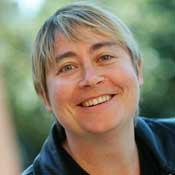
Vanessa Schwartz

Professor of History, USC
Courses: HIST 620: Advanced Research in Modernity and Visual Culture
HIST 313: Society and Culture in Modern France
HIST 429: Street Life: Urban Culture in Modern Europe
Terms: HIST 620: Fall 2008
HIST 313: Spring 2009
HIST 429: TBD
In HIST 620: To show students testimonies and discuss whether they constitute "visual history," as well as what a "visually-oriented" index for that would be
In HIST 313: To show testimonies about the liberation of Paris
In HIST 429: To show testimonies about cities such as Paris and Warsaw under occupation
To create a subtitled clip reel of testimonies in French, Yiddish, Polish, and Hebrew for use in these courses
United States
53.092603, 101.425781